
Frackers Booted Out of Eastern Europe
A combination of objective reality and strident direct action has seen fracking fade into oblivion in much of Eastern Europe. Good news for the rural areas where much of this would have occurred. […]

A combination of objective reality and strident direct action has seen fracking fade into oblivion in much of Eastern Europe. Good news for the rural areas where much of this would have occurred. […]
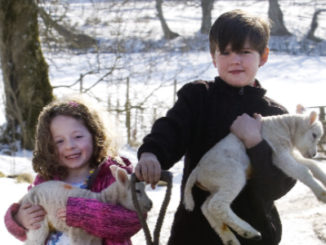
Whitmuir Community Farm, a few miles south of the Scottish capital Edinburgh is selling itself to the local community. Literally. For a couple of years now, Whitmuir Community Benefit Society has been selling shares in the working organic farm, with a view to securing the future of the educational work that already goes on there. “Transferring the land from private ownership to community ownership not only protects the long term future of the farm, but also allows greater collaboration with the educational and science sectors than is currently possible and enables the development of accommodation and teaching facilities on site,” explains Pete Ritchie, director of Nourish Scotland, who is currently farming Whitmuir with his partner, Heather Anderson. The process of selling shares was launched in 2013, with the first share being bought for then five-year-old Maya by her family. The launch event was also attended by the Scottish Parliament’s Cabinet Secretary for Rural Affairs, Food and Environment, Richard Lochhead (pictured below, with Maya). There are now 14 shareholders under the age of 16 and the […]
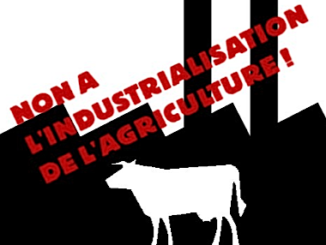
Where would you expect to find a completely automated dairy factory, where 280 cows are milked by four robots overseen by just two staff? The Breton town of Bréhan is home to this French factory farm, one of 27 listed in an online map published by Confédération paysanne (Conf’). The Conf’ has identified some of the most notorious factory-scale units so far in a list that is already extensive, with livestock units holding thousands of finishing cattle and thousands of piglets. One pig unit has applied to expand its herd to 3,000, despite being located in the middle of a Natura 2000 zone with an ecology that is home to flora and fauna of scientific interest. If the project at Loueuse (60) goes ahead, Cooperl will be spreading 5,000 cubic metres of slurry on 400 hectares. The public inquiry went in favour of the pig business Cooperl and the project will receive a final decision from the prefet in June. A factory farm for 4,500 finishing pigs at Heuringhem (62) received planning permission in March […]
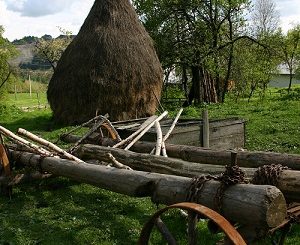
According to recent figures released by Eurostat, Romanian agriculture is highly unbalanced. That is not the big surprise. In the last 20 years the country’s agricultural landscape was in a continuous transformation; agrarian reforms without a long term vision, real estate and agribusiness “cowboys” from all over the world speculating on low prices, productions focusing mostly on export commodities…all in a country of peasants versus their institutional neighbours. The surprise lies in how different stakeholders interpret these figures. Let’s have a look. According to the EU analysis, Romania is the 8th agricultural power of Europe and for the year of 2014 has an agricultural production estimated to 15.5 billion Euro (1160 Euro/hectare). Poland was the only other ex-communist country which outranked Romania having a 22.5 billion Euro (1660 Euro/hectar) production. The top ranks go to France, with its 70.5 billion Euro and Germany – 51 billion Euro production. Where is the great unbalance? Crop production amounts for 73% of the total, 26% being attributed to animal farming and only 1% represents agricultural services. On the […]
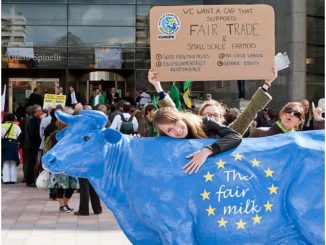
By Laetitia Nourry, Eco Ruralis intern on Food Chains Campaign 30 years after its setting up, the milk quota system is coming to its end. Europe is returning to unlimited production of milk where the benefits go to industrial farming. Another stab for the slowly disappearing peasant farmer. Milk quotas were set up in 1984 by the Common Agricultural Policy, to regulate the supply and demand and avoid prices collapse. So why lift them now? The reason is for economic. As milk consumption is increasing, especially in Asia (the demand of milk should double by 2022), the European Union definitely wants to keep its first place as milk exporter to the world. To reach this goal, one solution proposed by the EU leaders says that “farmers should be more aware of the market signal“. In other words, produce more milk, again and again, at the cheapest price. Hyper-production, exports, economic growth…but what is the price ? The end of quotas will indeed enrich big producers. Industrial farms will be able to produce milk in impressive […]
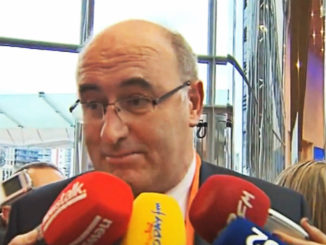
Simplification of the CAP is a hot topic at the moment, and will be until at least May. At the most recent Agriculture and Fisheries Council meeting (19/03/2015) “ministers exchanged views on their experiences in the implementation of the new Common Agricultural Policy (CAP). The most important issues highlighted as needing simplification in direct payments were the ‘greening’ measures and the controls.” Minister Jānis Dūklavs recalled that “member states supported the efforts of Presidency to agree Council conclusions on CAP simplification in May. Some of the issues raised by the member states require urgent attention as rules will have to apply on the ground already this spring. There are some areas where simplification might be possible through minor amendments to the existing provisions established by the Commission” The momentum for simplification comes from the Commissioner Hogan, who emphasised it in a December speech: “We need to simplify our rules now and cut red tape in an effective way” he said, promising to have made progress within a year. In this speech he asked for submissions on […]




Analysing CAP expenditure provides a great opportunity for civil society organisations to assess whether CAP will really be, as was promised, greener and fairer. Here on CAPWatch, we will give you the facts and provide our own analysis. So CAPWatch will step behind the basic stats and the spin, and, using our own specially developed metrics, reveal just how fair and green CAP 2014-2020 is.[show-map id=’1′] For more details click on the member stateThe details used here will mainly be ex-post expenses, based on the financial reports provided by the European Commission and data provided by EuroStat. Expenditures are annually published by the European Union: this gives us the chance to make analyses and comparisons on a quantitative basis. This then allows for the calculation of very simple and useful indicators, such as percentages, monetary values of expenditure per Member State (MS), per hectare, for specific policy objectives etc.) to figure out the way CAP money is spent on land, per worker*, per value added and per rural development priority. These calculations will highlight the real weight of […]
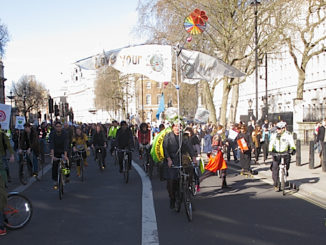
More than 20,000 climate change activists marched through central London on March 7, demanding a resolution of the international political logjam that is preventing world leaders from taking positive action on global warming. Thousands of UK demonstrators streamed down Whitehall waving flags, banners and placards, passing the security-fenced entrance to Downing Street. A phalanx of cyclists followed an elaborate winged bicycle bearing the message “Love your Mum” and cartoon images of an overheating globe with a thermometer in its mouth. On an unseasonally warm and sunny spring afternoon, the crowds brought an urgent message to Parliament Square that very few of UK politicians want to hear: climate change is already upon us. Speaking at the end of the march, Green MP Caroline Lucas made the point very forcefully: “The politicians in there are afraid,” she told the throng. “They are afraid because they don’t know what to do.” More to the point, industrial agriculture is a source of greenhouse gases (GHGs) at a time when farming should be part of the solution. The idea is […]
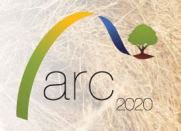
ARC NEWSFLASH March 2015 Hello from Oliver and Luise, Arc2020’s Communication team! Welcome to our March newsletter. We’re still full of enthusiasm after meeting up with almost 200 other civil society activists at our Good Food, Good Farming conference in Brussels. People from dozens of food and farming NGOs, as well as farmers, policy makers, academics and concerned citizens, all converged on the Belgian capital last month to tackle the question: how do we fix our broken food system? The aim of the event was to develop a roadmap for a common food policy. You can contribute to this process by going to our roadmap page and giving us your thoughts. The conference link takes you to a great 5 minute video overview, as well as some fantastic graphic harvesting art from the event itself, and lots more. Well worth a visit. We’re also running a Common Agriculture Policy (CAP) and agroecology project, and have published a brochure outlining ten of the best examples of ‘transitioning towards agroecology’ around the EU. North, south east, and west of the Continent are all covered, as are many agri-food […]
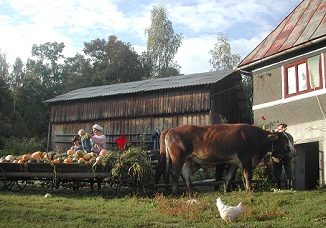
Ramona Duminicioiu unpacks the initiatives and the issues around local food and government inaction […]

Arc2020, Friends of the Earth Europe & IFOAM EU showcase 10 farming best practice case studies […]

The Common Agricultural Policy (CAP) shapes how Europe produces food, but in many ways its no longer fit for purpose. Watch some short animations about agroecological approaches to farming and food from Italy, UK, Ireland, Romania and the Baltic region. […]
Agricultural and Rural Convention